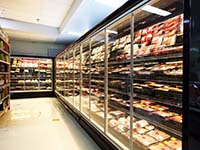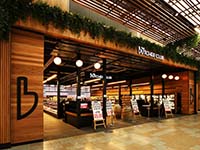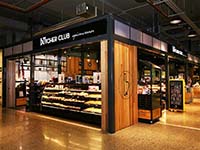Businesses handling delicate and perishable products should invest in systems that can store them optimally. One system that can do this task is a refrigeration system.
A refrigeration system is comprised of refrigeration units that can store a wide variety of items, particularly consumable food products. They can, however, be used to stock raw food ingredients before they are processed or delivered to other places.
Aside from storage functionality, refrigeration units can also preserve and even lengthen their lifespan without compromising their overall characteristics and qualities by exposing them to low temperatures. Cold or freezing temperatures, after all, can deter the growth of microorganisms and slow down the chemical changes that can spoil the products.
Here are some more things you must know about commercial refrigeration units.
Types of Commercial Refrigeration Units
There are various types of commercial refrigeration units that business owners like you must know and understand. Some of them are as follows.
- Coolers: Coolers are refrigeration units that can keep items like food and drinks below the average room and above freezing temperatures. They can prevent these products from getting spoiled, keeping them cool at all times.
- Freezers: Freezers are also refrigeration units that can keep food items and even drinks completely frozen. Freezing the products at very low temperatures can prevent them from getting spoiled. Some items that can be stored in freezers are microwavable food, ice cream, grains, flour, and others.
- Combination: Combination coolers and freezers are now existing to ensure that users like you can cool and freeze a wide range of items without investing in a lot of refrigeration units. With just one combination cooler and freezer, you can already cool and freeze products without spending too much money and space.
Working Principles of Refrigeration Units
Refrigeration units work through a principle known as the Second Law of Thermodynamics. It states that the heat will always travel from the warmer object to the colder object, especially when two objects of varying temperatures come close. As a result, these units maximise a refrigerant solution to transfer heat from the stored items into the refrigerant.
The refrigerant solutions used in refrigeration units obey the second physical principle, which is gases cool as they expand and heat up when they compress. As the refrigeration system works, the refrigerant is sent through various pressure changes to elevate efficiency and maintain speed. It then removes heat from the storage space to maintain its low temperature.
Professional Unit Installation is Essential
To ensure that your commercial refrigeration units can work optimally, they should be installed by professionals. Professional installation is highly recommended with these cold storage units since they may end up causing more expenses if not installed optimally. The operation of these units, after all, may depend on their location, configuration, and overall setup. Aside from installation, these units must be inspected and maintained by technicians regularly to avoid unnecessary downtimes and costly emergency repairs.
Basic cleaning and maintenance, however, can already be done by your staff to ensure your units can work optimally. Proper placement of products, for instance, can be applied to ensure they are not blocking the system airflow. Your employees should also clean the condenser coils, maintain the door seals, and clean the units inside out with the right cleaning products.
Optimized by: Netwizard SEO




